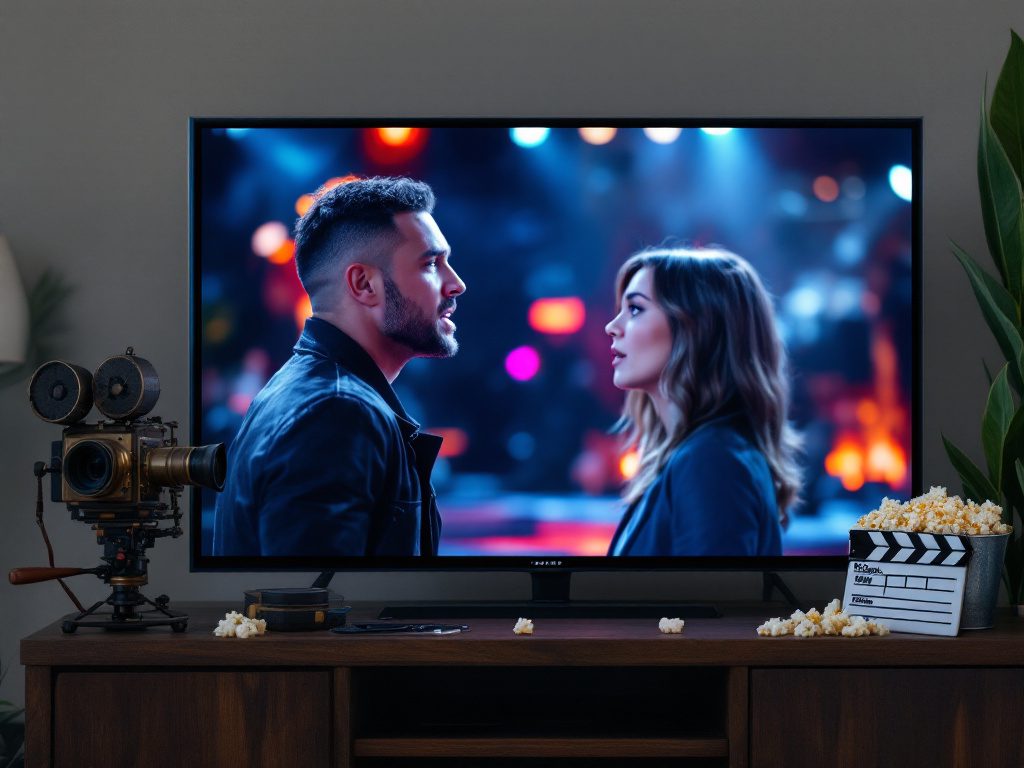The Politics of Portrayal: Stan, Trump, and the Power of Narrative
Celebrity and politics have always enjoyed a fraught relationship in America, but rarely has the boundary blurred as explosively as it did with Sebastian Stan’s portrayal of a young Donald Trump in 2024’s The Apprentice. The film, directed by Ali Abbasi, was bound to provoke a response—chronicling Trump’s formative business years and partnership with the notorious Roy Cohn was never going to be a neutral act, especially with the former president still looming large in the public consciousness.
The cinematic depiction didn’t just earn critical interest; it provoked an outright public broadside from Trump himself. Taking to his social media platform, Truth Social, Trump dismissed The Apprentice as a “cheap, defamatory, and politically disgusting hatchet job.” Yet, in a turn both deliciously ironic and utterly predictable, Sebastian Stan told Vanity Fair he’d put money down that Trump has “watched it 100 f—king times,” chalking it squarely up to Trump’s well-documented narcissism.
“He probably can’t get enough of how he looks on screen,” Stan quipped, sparking a round of laughter in the press—but the deeper undertones speak volumes about the way men like Trump obsess over their own portrayals in media.
Spotlight on Stan: Playing with Empathy in a Polarized Era
What does it mean to step into the skin of a man as reviled—yet paradoxically admired— as Donald Trump? For Sebastian Stan, the challenge wasn’t simply mimicry or accent, but finding that sliver of humanity beneath even the most divisive public figures. Jane Fonda, accepting her Lifetime Achievement Award at the SAG Awards, called out Stan’s performance as an exercise in empathy, urging fellow actors to “see the world through every character’s lens, even if that character is Donald Trump.” For Stan, this was “maybe better” than winning the Oscar itself.
A closer look reveals why such nuanced portrayals matter. The Apprentice doesn’t rely solely on caricature or camp; it’s an exploration of how Trump became Trump, mentored in the dark arts of public manipulation by Roy Cohn—an architect of McCarthyism whose ghost still haunts Republican tactics today. Jeremy Strong’s haunting turn as Cohn earned him a string of nominations, further anchoring the film’s credibility and impact.
Jane Fonda’s praise illuminated the tightrope actors must walk, portraying controversial figures without descending into parody. Stan, himself no stranger to playing complex antiheroes, emphasized in interviews that the job isn’t to exonerate or indict, but to understand. This approach, rarely found in conservative media, dares to ask what America’s obsession with celebrity, power, and reputation really says about us all.
“You have to find some humanity in him, even if other people think there’s none. It’s the only way to make it real.” — Sebastian Stan, Vanity Fair
Culture Wars, Fact and Fiction: Conservative Outrage and the Art of Critique
There’s little question that The Apprentice struck a raw nerve. Trump’s furious rejection of the film as defamatory came after a particularly controversial scene—one depicting a rape allegation involving his first wife, Ivana, based on accusations she later recanted. According to The Hollywood Reporter, this sequence single-handedly set conservative media into a frenzy, launching a wave of bad-faith attacks and calls for boycotts. Refusing to reckon with uncomfortable history is, unfortunately, a signature feature of right-wing media strategy. Instead of addressing the underlying questions about power, coercion, and image, critics sought to silence discussion outright.
Yet, the intense pushback from Trump’s camp only amplifies the film’s cultural relevance. Works like The Apprentice—whether fiction, biography, or something in between—offer the American public an opportunity to process the trauma and spectacle of Trumpism. Experts like Dr. Virginia Heffernan, media critic and New York Times contributor, argue that how society fictionalizes leaders reveals our deepest democratic anxieties. “For all his bluster, Trump obsesses over his public representation because, like all demagogues, he’s terrified of losing control over his story,” Heffernan noted during a recent NPR interview.
This is hardly new in American history. Films and novels have long been vehicles for confronting our national shames and doubts—the difference now is the speed and intensity of the backlash, supercharged by social media tribalism. History reminds us that attempts to shutter artistic critique usually backfire. Billie Holiday’s Strange Fruit, Dalton Trumbo’s blacklisted scripts, even Norman Lear’s sitcoms—all were denounced in their time, only to rise as cultural touchstones that forced the country to reckon with itself.
Stan, for his part, seems unbothered by conservative condemnation. Asked if he feared Trump’s notorious “enemies list,” Stan wryly replied that he “wouldn’t mind being on a list like that if it meant making meaningful art.” That is the spirit progressive America needs right now—a willingness to challenge, to reflect, and to tell the truth, however unpalatable it might be.

